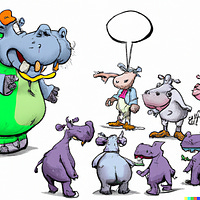A well-known guy in the copywriting space loves to use million-dollar words. He does it a lot in writing. He does it even more when giving a speech. I’ve always wondered about this. It seems out of place in the quick-cheap-easy world of direct response. Like some kind of insecurity. Like he’s trying to prove he’s educated and smart. If so, then lousy move, at least if you go by a study I just read. Back in 2005, a Princeton University scientist jiggered many texts. He put longer words into some. He put shorter words into others. And then, he put these texts in front of Stanford undergrads to see what they would say. I’m sure you can guess one part of what the students said. The texts with longer words were harder to read. No surprise there. But get this: Students also said that longer words made the author sound less smart. And vice versa. Shorter words made the author sound more smart. Of course, if you like, there are holes you can poke in this study: It was only done on Stanford students, an unusual bunch. And it’s only about written texts and not about speech. But to my lazy mind, the finding is clear: Use short words. Make your writing and speaking simple. Not because you want to sell more. That’s a nice side effect. But the real benefit is that short and simple will make you sound smarter. And now the punchline: Are you impressed by my 1- and 2- syllable words? You can do the same by parsing your text through the Hemmingway app to reduce the reading age. Regards, P.S. Sometimes, using shorter words helps make your message more easily absorbed. Sometimes you need to use a bigger word to hammer home the message. It doesn’t matter much if you don’t use big words to intimidate your readers. Writing clearly is more important than the size of the words you use, but not everyone can write clearly because they have never learned to do so. You can ignore this link if your writing is already getting results in subscribers and sales. |

Where the marketing is easy.
